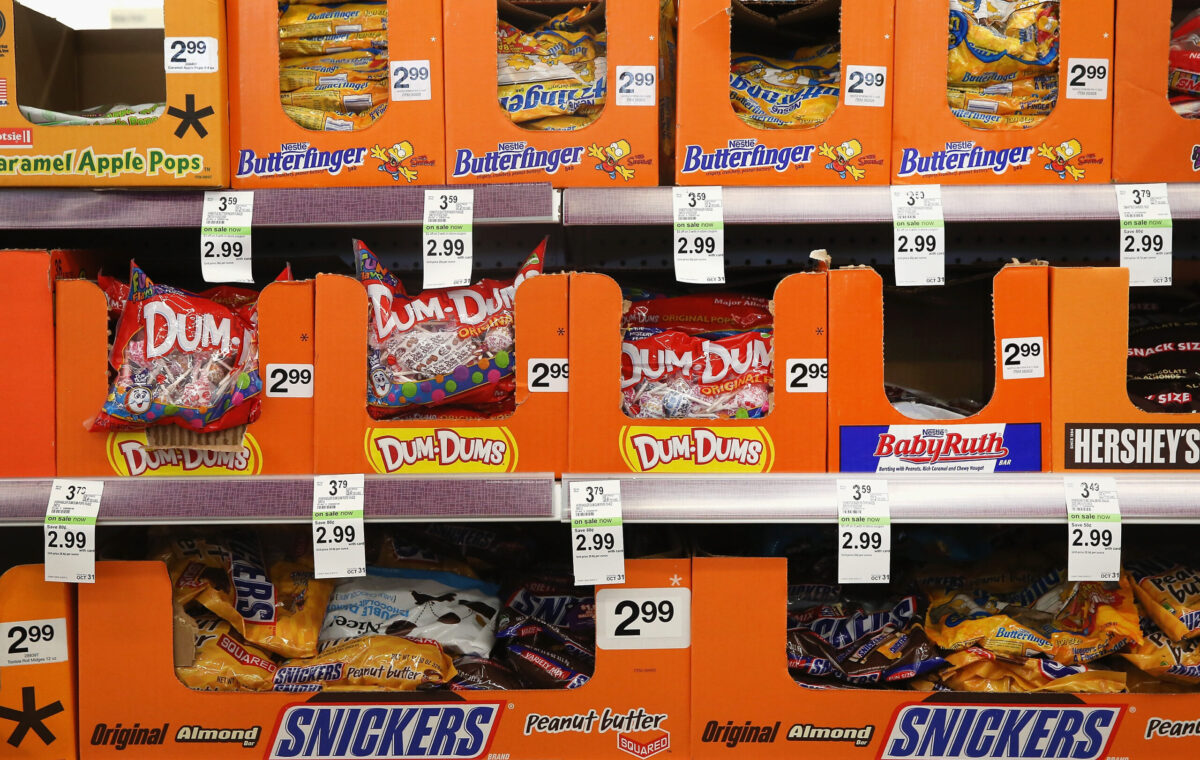New Drug for This Year’s Halloween Candy Tampering Panic Just Dropped

This year’s Halloween candy tampering panic has just made its arrival, as the media spreads misinformation on the supposed threat of a new drug being slipped into children’s Halloween candy. Panic surrounding the potential of children receiving tampered Halloween candy occurs on a yearly basis, but it is largely an old urban legend. Every year, parents and the media spread myths about the possibility of drugs, razor blades, glass, or sewing needles being covertly handed out in children’s Halloween candy from the hands of some ill-wishing stranger.
The Halloween candy tampering panic is believed to have first started around the 1970s. Two children’s deaths during the decade were initially erroneously reported to have been caused by Halloween candy. In 1970, Kevin Toston, a boy from Detroit, died from heroin poisoning. His family claimed that the drug had been sprinkled over his Halloween candy. However, it was later revealed that he had ingested a heroin capsule he found at his Uncle’s house.
In 1974 panic struck again when 8-year-old Timothy O’Brien died after consuming cyanide-laced Pixie Stix. Later, it was learned that the cyanide-laced candy had been planted by his father in a scheme to murder his son and claim his life insurance. In all the decades since the 70s, there has not been a single confirmed case of a child dying or being seriously injured by Halloween candy received from a stranger. In the exceedingly rare case that a child did receive tampered candy, it was almost exclusively received from a friend or family friend. Yet, every year, the media regurgitates the myth of tampered Halloween candy, and this year, a drug known as “rainbow fentanyl” is the culprit of Halloween panic.
Drug Enforcement Agency (DEA) warning on rainbow fentanyl
Many are familiar with the growing opioid crisis in the United States and the role that fentanyl plays in it. What makes Fentanyl especially dangerous is its high potency. According to the Drug Enforcement Agency (DEA), Fentanyl is 50 times more potent than heroin and 100 times more potent than morphine. Synthetic opioids like fentanyl make up more than half of all cases of drug overdose deaths that occur in the U.S. annually. Hence, fentanyl certainly is a dangerous drug and parents should be vigilant in educating their children about drugs.
However, the DEA has begun warning about a phenomenon referred to as rainbow fentanyl. While the drug is typically packaged to look like prescription medication, the DEA warned that they’ve seen a rise in fentanyl in bright colors, with a similar appearance to candy. Drug traffickers are allegedly even referring to rainbow fentanyl as Skittles or Sweet Tarts. The DEA warned that they believe that traffickers are specifically targeting children with the rainbow fentanyl.
The DEA’s warning, though, seems to be backed with little evidence. We do know that rainbow fentanyl is being produced and has been seized as proof. However, while the DEA’s concerns about the drug targeting “young adults” may be accurate, there’s little evidence that its bright colors are a ploy at marketing the drug to children. Drug dealers do target young people, but not so young that they’d be persuaded into purchasing drugs because it looks like candy. Also, drug dealers are business people and they’re not likely to find reliable costumers in children they trick into believing the fentanyl is candy. They also certainly wouldn’t waste fentanyl by throwing it in kids’ Halloween baskets for free.
Government officials spread rainbow fentanyl Halloween panic
Contrary to reports, the DEA never issued a warning explicitly about rainbow fentanyl being passed around as Halloween candy this year. Their questionable warning about rainbow fentanyl being marketed to kids is simply being taken out context and spreading like wildfire. U.S. Senator Chuck Schumer, is one government official who is stoking the flames of panic. Schumer issued a warning to parents that, with Halloween coming, the presence of rainbow fentanyl is especially dangerous. He alleged that drug dealers will try to hook kids on fentanyl by putting it in their Halloween candy. He wrapped up his warnings by calling for a vote for a $290 million federal budget dedicated to combating fentanyl.
Of course, the misinformation spread quickly across the media. Ryan Marino MD took to Twitter to criticize the DEA’s unfounded claims that rainbow fentanyl is being marketed to children. He also criticized numerous outlets for repeating the warning without conducting research or asking important questions. Dr. Marino also shared solid proof of the misinformation’s wild spread with a snapshot of 4 different Twitter users all issuing the exact same warning to check your kids’ Halloween candy for rainbow fentanyl. Check out Dr. Marino’s posts below:
With Schumer asking for $290 million to fight fentanyl, it certainly seems that the DEA’s initial warning is largely propaganda, made in hopes of sparking unnecessary panic and increasing its budget for the war on drugs.
The yearly unfounded panic strikes again
For anyone still questioning it, the chances of your child getting fentanyl in their Halloween candy, from a stranger, is near zero. After all, the same exact panic strikes every year at Halloween. Yet, every single year, for numerous decades, not a single child has ever died from eating tampered Halloween candy. This makes the idea of anything being put in your child’s basket besides candy highly unlikely, and the idea of drug dealers deciding to hand out trafficked drugs for free, to children on Halloween, even more absurd.
Fentanyl is a serious threat in America. However, you’re only going to protect your children by thoroughly and accurately educating them. You certainly won’t be doing any good by filling them with unfounded terror that fentanyl is being slipped into their Halloween candy without their knowledge.
(featured image: Scott Olson/Getty Images)
Have a tip we should know? tips@themarysue.com